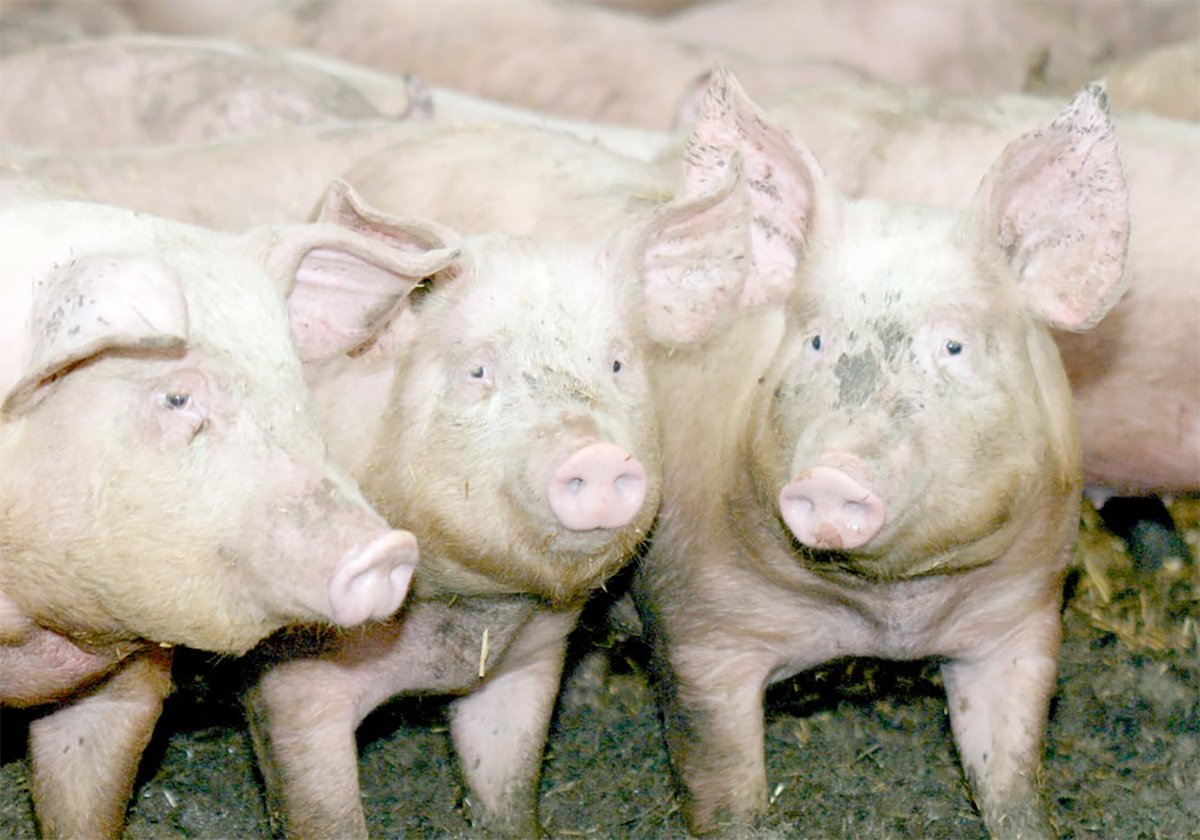A coalition of animal rights activists wants long distance hauling of livestock for slaughter to stop.
The Handle with Care coalition cited cases from around the world where animals and poultry transported long distances by road and sea weakened or died before they reached their destination.
The group has launched its campaign by targeting hogs from southern Alberta Hutterite colonies that are assembled at Perlich Bros. in Lethbridge and then trucked to California slaughter plants. In some cases the hogs are regrouped with American hogs and sent by ship to Hawaii.
Read Also

The Western Producer Livestock Report – November 13, 2025
Western Producer Livestock Report for November 13, 2025. See U.S. & Canadian hog prices, Canadian bison & lamb market data and sales insights.
During a Calgary news conference Feb. 12, an undercover video shot by the activist group EcoStorm showed the pigs’ journey from Alberta to Hawaii in March 2007. The trip took seven days.
The coalition charged the animals were kept in tight confinement and did not receive adequate rest, water or feed. The video also showed handlers hitting pigs with boards to move them along. Some animals fell out of the container onto concrete as they scrambled out of the trailer.
In a news release dated Feb. 13, the coalition said Hawaii’s agriculture department reported the last shipment of pigs from Canada was in early October 2007.Â
“While it is very good news that Canadian pigs are no longer being shipped to Hawaii, it is unclear whether these shipments have ceased permanently,” the release said.
Complaints about the pigs’ travelling conditions were made to Canadian and U.S. government officials, said coalition member Pat Tohill of the World Society for the Protection of Animals.
The Hawaii situation was used as an example to persuade Canada to change its animal transportation laws.
“Canada has the lowest standards in the developed world,” said Rebecca Aldworth of Humane Society International/Canada.
Gord Doonan of the Canadian Food Inspection Agency said new regulations could be in place later this year.
Carriers cannot move animals in Canada in a way that would cause injury or undue suffering, but regulations do not cover exports.
“If the shipment is exported, it is different. We have no authority or jurisdiction once the shipment has left Canadian territory,” Doonan said.
“We are concerned about the possibility that animals could leave the country and that we might be aware that they are going to suffer as a result of the transport conditions.”
Regulations say horses, hogs and other monogastric animals cannot be confined for more than 36 hours without food or water. Cattle, sheep, goats and other ruminants cannot go for longer than 48 hours.
They must receive clean water and feed when they are unloaded. The transport vehicle must provide clean bedding, enough space to lie down and protection from inclement weather.
New regulations are looking at outcomes rather than specific numbers, which means they will say animals must not arrive dehydrated rather than that they be watered every 36 hours.
“We would leave the current maximum intervals in place and we would add outcome based requirements. We want the animals to arrive in comfort and good condition,” Doonan said.
“We are adding some provisions that would seek to make sure the focus is on how well the animals do, rather than numerical time intervals.”
New rules are also coming on loading density, which tries to account for an animal’s weight and how much space it uses during different stages of its life.
“They are very compatible with loading densities in other parts of the world,” Doonan said.
The regulations also emphasize handler competence, attitude and proper training.
“The most important factor affecting the welfare of animals is the attitude of the people who are taking care of them,” said Doonan.
Transporter training and certification for handlers are available.
“If you have people who are trained and they understand the importance of being good to the animals and they know what the animals’ needs are, that is when you avoid problems,” he said.
Susan Church of Alberta Farm Animal Care, who has been working with the government on animal transportation, said Alberta has been in the forefront, offering transportation training to truckers, peace officers and emergency workers.
“The interest level is very high,” she said.
Other jurisdictions also offer training.
“We want to have a program that is reciprocal with the U.S. programs. It is all the same information, we are all saying the same thing.”
Jodi Hesse of Alberta Pork said the organization is taking the abuse allegations seriously.
Alberta Pork was a founding member of a national long transportation project to improve regulations and ensure people are trained properly when hauling animals. They also believe action needs to be taken with those responsible if the coalition’s allegations are true.
“If mistakes are being made in the U.S., they should be investigated,” she said.















